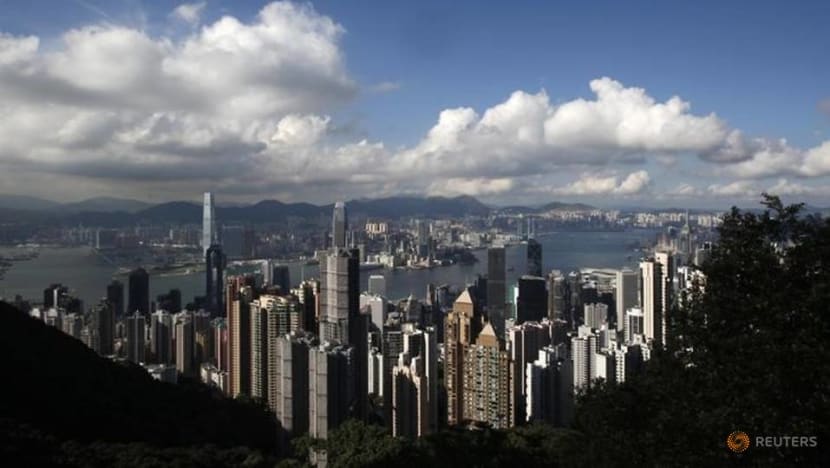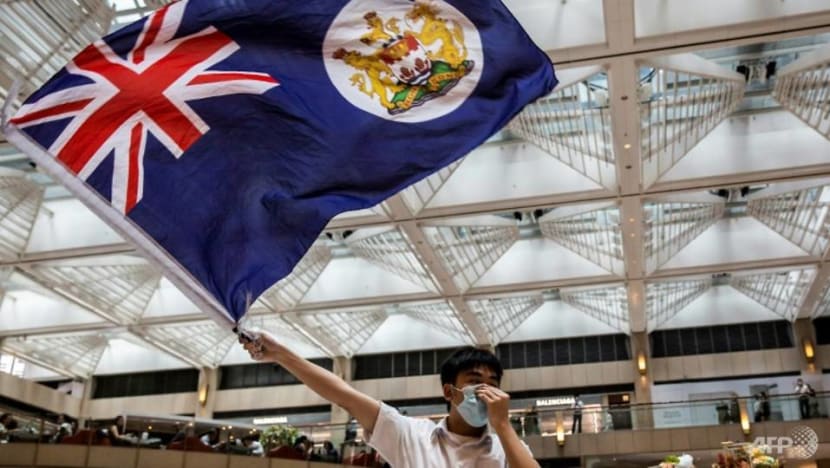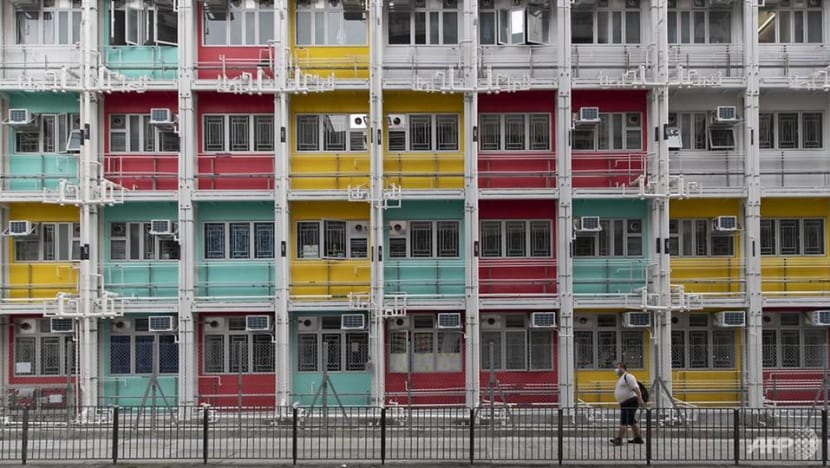commentary Commentary
Commentary: Why Hong Kong property defies gloomy forecasts
Investors should take note of Hong Kong developers, says the Financial Times’ June Yoon.

The Hong Kong skyline is seen from The Peak. (Photo: Reuters/Bobby Yip)
LONDON: Forecasts for the Hong Kong property market this time last year were as gloomy as the view from the Peak overlooking the territory on one of its more polluted days.
Political uncertainty, travel bans related to the COVID-19 pandemic and the UK’s decision to open the door to Hong Kongers holding British National Overseas passports were widely expected to knock billions off property valuations.
But the territory’s property market, not for the first time, has defied the doom-laden predictions.
READ: Commentary: A return to Phase 2 could be a momentary setback to Singapore’s economic recovery
While rents have dropped, Hong Kong’s April property deals by value more than doubled, according to Land Registry data.
In the secondary market, home prices are on track to hit a 23-year high, according to estimates by property agency Centaline. Average home prices are just 2 per cent shy of historical highs.
“Hong Kong is a unique market. There is constant demand from the type of buyer for whom price does not matter. Supply has always been limited. None of that has changed,” said Derek Chan, head of research at property agency Ricacorp Properties.
READ: Commentary: Keeping public housing in prime locations like Greater Southern Waterfront affordable and fair
LONDON A MORE ATTRACTIVE PROPERTY MARKET?
It had been expected that the property market would be affected by a UK decision to allow a favourable path to citizenship for the 3 million residents of the territory who hold or are eligible for BNO passports.
Indeed, about 310,000 BNO passports were issued last year, double the previous year.
Some 153,300 Hong Kong people are forecast to settle in the UK this year, according to a British Home Office study. Some of these BNO passport holders must have been active buyers in the UK.

For Hong Kongers, London must seem relatively attractive. The territory was the world’s most expensive property market last year, with an average home price of US$1.2 million, or US$1,987 per sq ft, more than double that of London.
Moreover, its prime residential property provides one of the lowest rental yields globally, at 1.8 per cent. That compares with the average in London of 3.8 per cent yield at the end of last year.
READ: Commentary: Life in the UK is not easy for former Hong Kong residents
MAINLAND CHINESE INVESTORS
Yet neither of these two factors matter much to wealthy mainland Chinese investors looking for a place to park their cash conveniently close to home.
Over the past decade, Hong Kong home prices have gained well over 200 per cent. Mainland buyers with an eye on past returns are returning to the territory to fill any gaps locals have left behind.
Residential property purchases in Hong Kong by mainland Chinese buyers rose 40 per cent in the first two months of this year. A recent push from Beijing to launch a wealth management connection between the mainland and Hong Kong should push demand higher.
READ: Commentary: Did aggressive land bidding by Chinese developers push up Singapore property prices?
It is likely to have been seen by some mainlanders as Beijing’s stamp of approval on investing in Hong Kong.
“At current rates, housing prices should rise by up to 15 per cent this year,” said Chan.
He said it was notable that the demand from mainland Chinese buyers was there, even though the borders remained largely shut between Hong Kong and mainland China because of the pandemic.
“When borders reopen, there should be a dramatic increase.”
READ: Commentary: Hong Kong and Singapore air travel bubble could be a game-changer
HONG KONG DEVELOPERS FLUSH WITH CASH
Developers in Hong Kong have been quick to capitalise on this. Having sold out of new developments, Road King Infrastructure and Sun Hung Kai have increased prices of its latest batch of apartments by as much as 11 per cent.

Yet in stock markets, Hong Kong’s developers have been shunned for most of the past year, leaving them significantly undervalued.
They trade at a significant discount to net asset value, well over 50 per cent, being regarded as laden with political risks and exposed to a lasting drop in tourism in the city state.
On a closer look, however, profits from surging rent and property prices in their portfolio of assets in mainland China have offset weak retail rents and empty hotels in Hong Kong.
That gives investors exposure to gains from central commercial properties in important cities such as Shenzhen and Shanghai, minus the heavy debt load of mainland developers.
READ: Commentary: Hong Kong’s future clearly lies with China
Hong Kong’s developers are flush with cash and have some of the strongest balance sheets across global peers.
For example, CK Asset’s net gearing – total debt versus total shareholder equity – stands at just 4.8 per cent, even lower than levels before the pandemic. That compares with 98 per cent for mainland peer Kaisa and Evergrande’s 153 per cent.
The failure of gloomy forecasting over the past year has underlined the opportunities for contrarian investors. They should take note of Hong Kong developers.
Are cooling measures on the cards after four quarters of price increases in the residential property market? CEO Propnex Ismail Gafoor and NUS Institute of Real Estate Studies Dr Lee Nai Jia give on their take on CNA's Heart of the Matter podcast:












